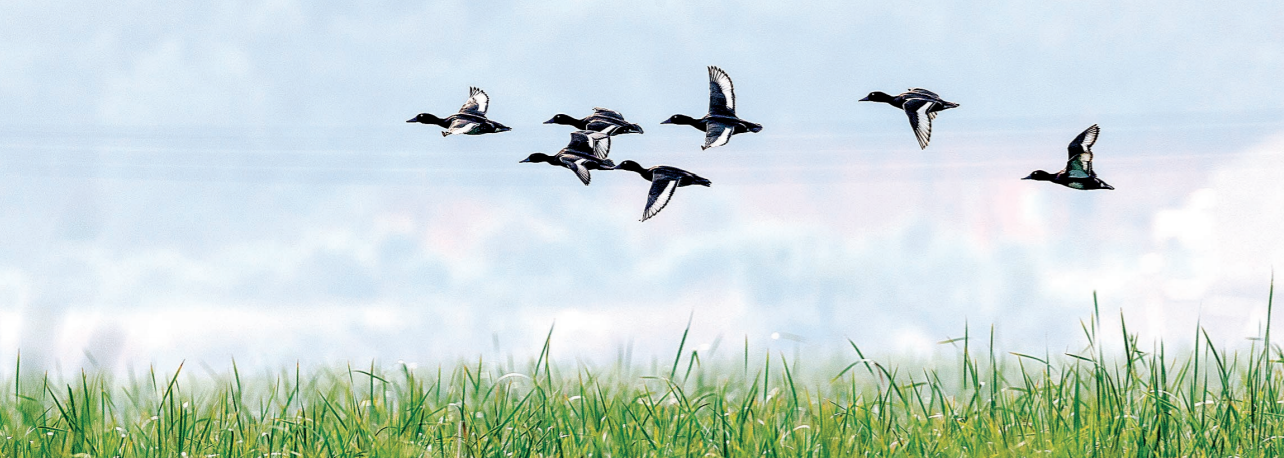




- BRNN
- BRI News
- BRNN News
- Database
Official Documents Polices and Regulations
Inter-government Documents International Cooperation BRI Countries
Business Guide Economic Data BRI Data
Trade
Investment Projects Latest projects
Cases - Content Pool
Every morning after dropping off his child at school, Zhu Xiangneng heads straight to his crayfish farm — not to check on the crayfish, but to watch birds.
"Look! That's the Baer's pochard," he whispered, gesturing toward a few birds perched on an artificial island in the distance.
Zhu operates a crayfish farm at Baoxie Lake in the Wuhan Donghu New Technology Development Zone in Wuhan, central China’s Hubei Province.

Baer's pochards fly over a wetland in Wuhan, central China's Hubei Province. (Photo/Changjiang Daily)
The Baer's pochard, a critically endangered diving duck, is under first-class state protection in China.
His first encounter with the birds came in 2016. "That was when I stopped raising fish and switched to farming crayfish. The water was shallower, and aquatic plants like lotus and reeds gradually began to flourish. Then these wild ducks I'd never seen before started showing up," Zhu recalled. At the time, he did not realize they were Baer's pochards.
Zhu avoids using feed or chemicals, keeping his ponds clean and clear. He also never drives away the wild ducks that come to forage. "There aren't many of them, and they don't eat enough crayfish to affect my harvest," he said.
As a result, aside from a brief summer migration, the birds have made a home in his fields.
In the spring of 2022, Zhu was harvesting crayfish when strangers appeared by the pond.
"I went over to ask what they were doing, and they told me they were members of the Wuhan Birdwatching Society looking for Baer's pochards," Zhu said.
After seeing photos of the bird and learning about its characteristics, Zhu realized that the "wild ducks" living in his fields for the past four or five years were, in fact, the species they were searching for.
Once the discovery was confirmed, the birdwatchers asked Zhu if he could help them find nesting sites.
Soon after, he spotted a nest tucked in the grass near the pond's edge, holding a neat clutch of 13 eggs. Further searches uncovered several more nests — all belonging to Baer's pochards.
"They asked if they could set up surveillance cameras and infrared equipment to monitor the ducks' development. I didn't hesitate to say yes," Zhu said. The birdwatching society also invited him to volunteer.
In addition to tending his crayfish, Zhu reviews footage from the infrared cameras, documents the ducks’ living conditions and helps educate others to prevent unintentional harm to the birds. More than 70 percent of the nests have successfully produced hatchlings thanks to his care.
Spending more time outdoors has also honed Zhu’s birdwatching skills.
"I didn't know many bird species before, but now I can identify more than 50," he said. "The more I learn about them, the more I love them — and the more motivated I am to protect them."

Tel:86-10-65363107, 86-10-65368220, 86-10-65363106